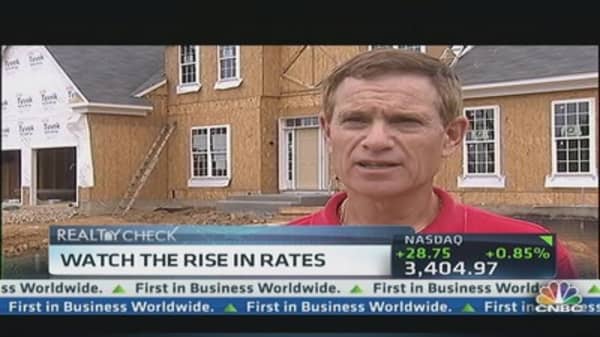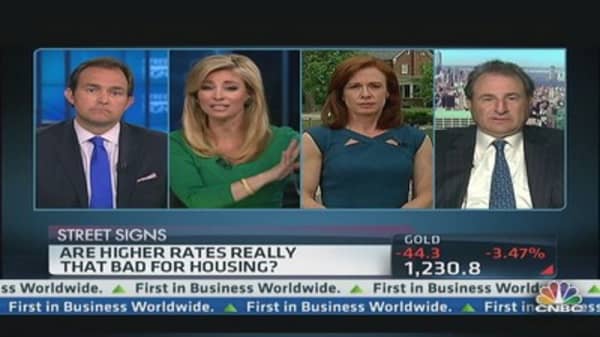Sales of newly built homes rose to their highest level in five years in May, according to numbers compiled by the U.S. Census, but those numbers are at risk of being wrong. They are based on signed contracts, not closings, for homes, many of which have not yet been built. Those contracts were signed well before a huge spike in mortgage rates, and those closings could be up to nine months away, when the homes are completed.
"We've been talking a lot with salespeople across the country to get a read on the current situation," says Stephen East, a home building analyst with ISI Group. "Sales people are very worried about it. Customers are worried that they cannot yet lock in, and they are watching the rates get away from them. I do think cancellations will climb."






